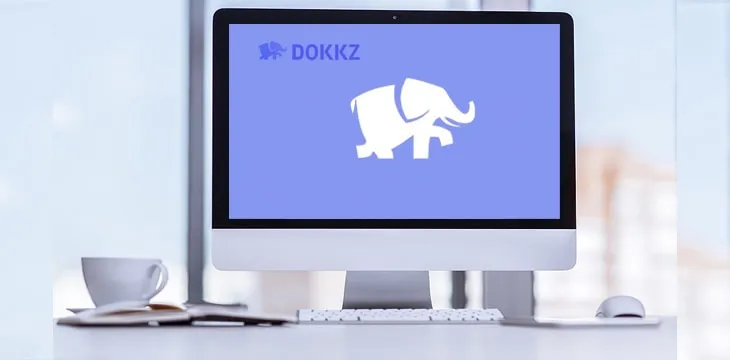|
Getting your Trinity Audio player ready...
|
A new service using the Bitcoin SV blockchain to verify and authenticate documents, “Dokkz” aims to help businesses with quality and risk management by providing a fast and effective method of validating and authenticating digital documents.
The ability to alter digital documents provides plenty of opportunity to commit fraud. Even when a clever user uses tactics to cover their tracks, it can require expertise in computer forensics to discover the problem, identify how the changes were made and by whom, and then convince others of what has happened. The ongoing legal battles between Ira Kleiman and Dr. Craig Wright have brought the issue to public attention, with both sides accusing each other (and third parties) of tampering with various documents used as evidence in the case. A blockchain-based solution like Dokkz would eliminate this problem.
Yes, it is Bitcoin.
But designed for business!
So they don't really have to know.#BitcoinSV #BSV #Metanet #WeChooseSV pic.twitter.com/LApPiuEtiF
— DOKKZ (@dokkz_com) March 10, 2020
Paper documents may be altered too, but it’s a lot harder to do, especially when there are multiple copies. So, even in 2020, paper documents are regarded as having more integrity. The problem is, in today’s world, a significant amount of important documents and communications exist solely within the digital realm. Something as simple as an email or chat log may later become a vital piece of evidence to prove an agreement exists or an invoice is genuine, establish guilt or innocence, verify a qualification, or uncover a plot.
Proving what, who, when
The service is currently available only to businesses, and Dokkz verifies that individual users work for or represent that business. The service works by extracting a checksum (hash) from the user’s browser, adding to it some meta information like the business’ name and logo, a hash of the document itself, time of registry, and any other information the user wishes to add.
This information is used to ensure the document content remains private and may be accessed only by those authorized to do so. In most cases, that would be the person who created and/or uploaded the document, plus anyone else who has received it.
The Netherlands-based company is headed by Donald Mulders, a long-time proponent of Bitcoin SV (BSV) and supporter of on-chain scaling. He said:
“What Dokkz does is allow people, in an easy way, to create trusted digital documents. It offers a way where you can have an attestation of when and by whom a document was made, as well as a way to check whether it has been modified or tampered with by using the Bitcoin SV blockchain.”
More proof that on-chain Bitcoin scaling matters
Dokkz brings into reality another idea the Bitcoin world raised long ago, but which was forgotten as the BTC blockchain became “digital gold,” its unit a static asset transacted only when it was absolutely necessary. Now that Bitcoin is restored as BSV, many of the old (and extremely useful) use cases are returning.
Mulders said the service has room for improvement, particularly in verifying users’ individual identities.
“This is one of the first real use cases of blockchain technology outside of financial transactions, but in my opinion, it hasn’t yet been implemented in the way that I would look to see. One of the specific elements that is missing is identity. With a timestamp, you get a little piece of information to verify when something was made—and for most services, this element is seen as being enough. But I think that when you require proper assurance that a document is authentic and all in order, you also need to be able to establish identity, which is built into the basic service that we provide.”
Dokkz is based on the SaaS (software-as-a-service) model, charging a flat subscription fee to upload any number of documents, rather than charging per upload. Its drag-and-drop interface and dashboard layout is simple enough for anyone to use, yet document integrity is backed by the power of BSV and the theoretically unlimited capacity for data storage/processing.
“With our service, we organize things in such a way that it’s easy to use and accessible by everyone,” Mulders added. “You don’t need to know anything about the blockchain or hold cryptocurrency, as a customer, you sign up for a subscription which is a flat fee that allows unlimited use of the system.”
Dokkz’s mission is “to organize trust between people and organizations by eliminating any concerns about fraud with digital documents.” Just as trust is an essential component in any business (or other) agreement, more opportunities to commit fraud creates more fraud… and less trust.
With a way to register and verify document integrity, trust can return to the world of digital business. But to do that, the world needs a single ledger of proof that everyone can rely on. As Mulders concluded:
“There is only one viable blockchain with a long-term outlook and that is Bitcoin (BSV). With the big blocks that can be processed on the network, it ensures that miners are able to sustain themselves through transaction fees as the block subsidy decreases. With a declining subsidy on other chains, they’re going to run into a dead end. Whether that’s 10 or 20 years from now, it means that we can’t look to be building projects for the future on these blockchains.”

 07-12-2025
07-12-2025 





